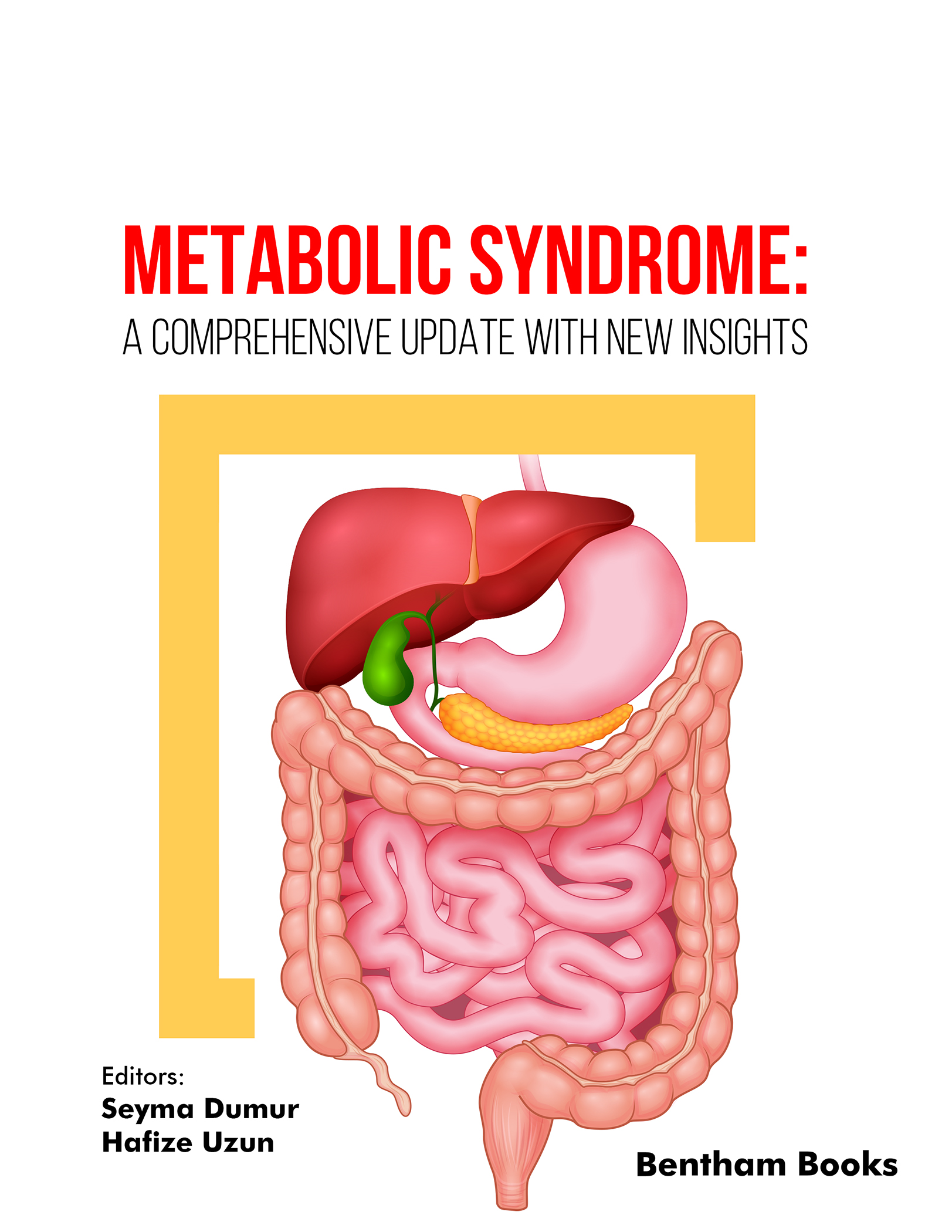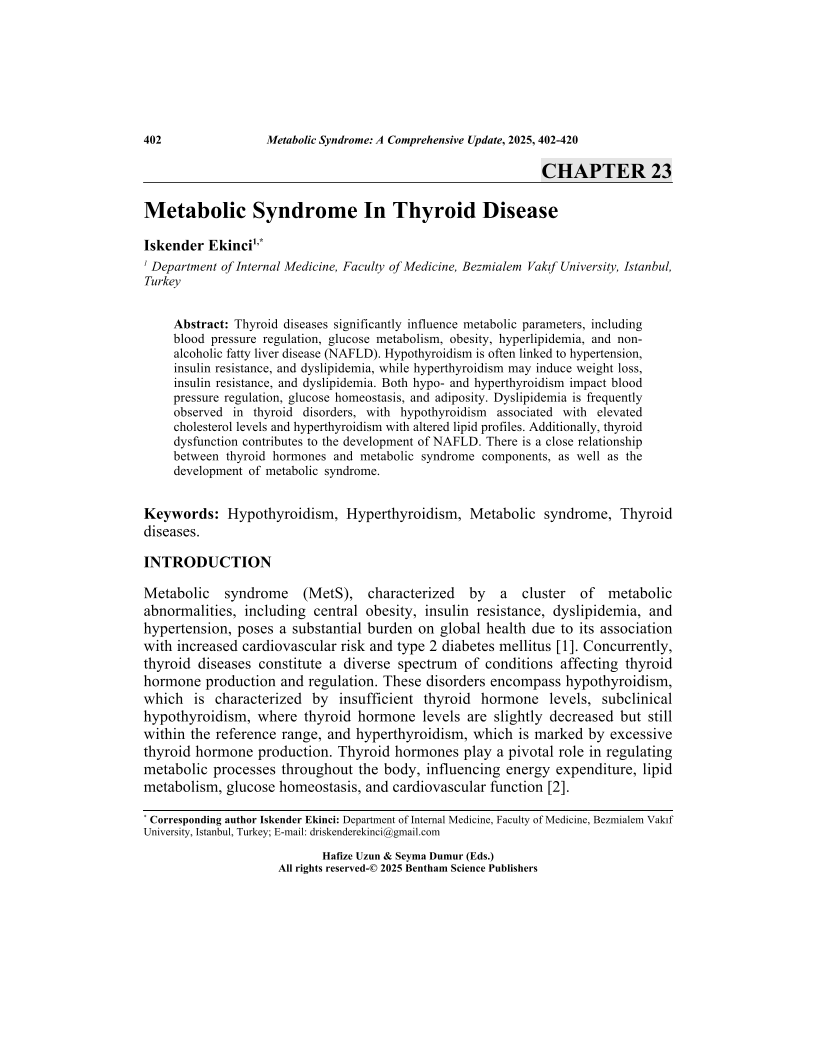Metabolic Syndrome In Thyroid Disease

- By Iskender Ekinci1
-
View Affiliations Hide Affiliations1 Department of Internal Medicine, Faculty of Medicine, Bezmialem Vakf University, Istanbul, Turkey
- Source: Metabolic Syndrome: A Comprehensive Update with New Insights , pp 402-420
- Publication Date: January 2025
- Language: English
Metabolic Syndrome In Thyroid Disease, Page 1 of 1
< Previous page | Next page > /docserver/preview/fulltext/9789815322132/chapter-23-1.gif
Thyroid diseases significantly influence metabolic parameters, including blood pressure regulation, glucose metabolism, obesity, hyperlipidemia, and nonalcoholic fatty liver disease (NAFLD). Hypothyroidism is often linked to hypertension, insulin resistance, and dyslipidemia, while hyperthyroidism may induce weight loss, insulin resistance, and dyslipidemia. Both hypo- and hyperthyroidism impact blood pressure regulation, glucose homeostasis, and adiposity. Dyslipidemia is frequently observed in thyroid disorders, with hypothyroidism associated with elevated cholesterol levels and hyperthyroidism with altered lipid profiles. Additionally, thyroid dysfunction contributes to the development of NAFLD. There is a close relationship between thyroid hormones and metabolic syndrome components, as well as the development of metabolic syndrome.
-
From This Site
/content/books/9789815322132.chapter-23dcterms_subject,pub_keyword-contentType:Journal -contentType:Figure -contentType:Table -contentType:SupplementaryData105

